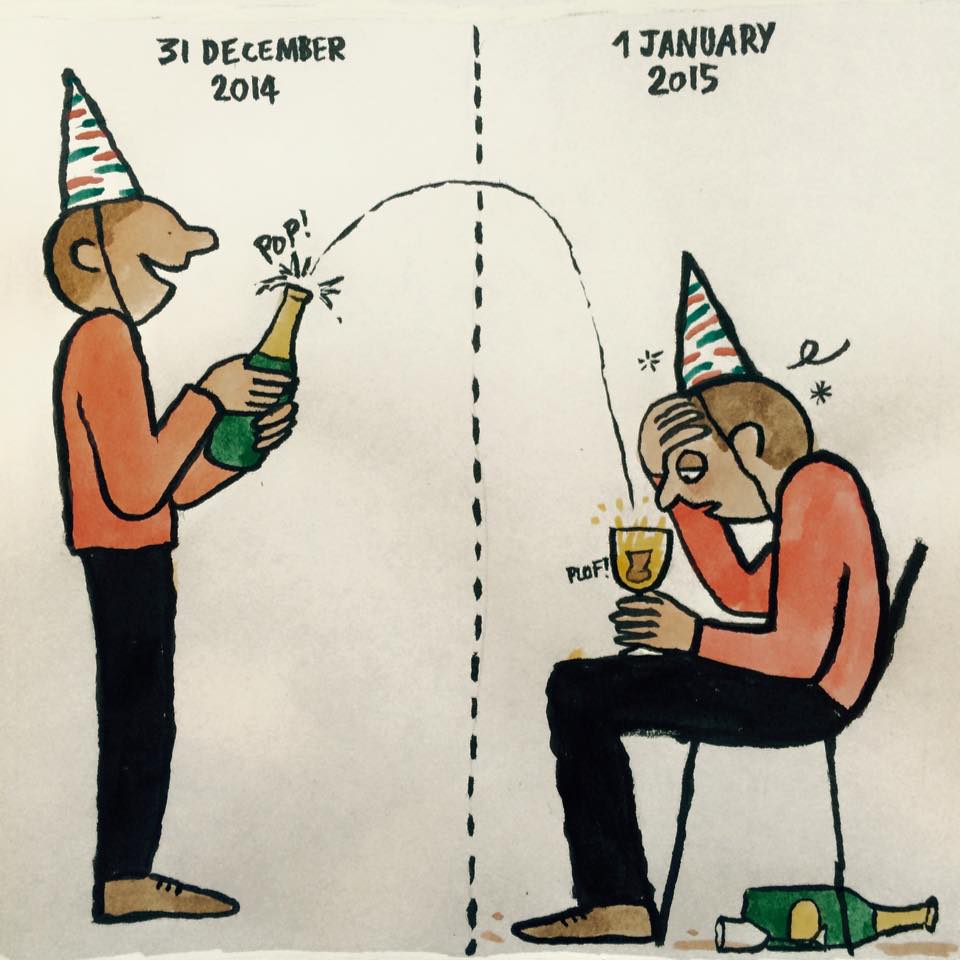“Maybe all one can do is hope to end up with the right regrets”. Arthur Miller.
Hopefully! I surely have had my fair share of mistakes, and consequently a few regrets too although to be honest, I don’t really know if the are of the right kind. There are a couple of things, or maybe more, that I would probably have done differently if given the chance but…. this is now water over the bridge and it’s no use crying over spilt milk! What about you? Do you have any regrets?
Let’s talk about regrets today.
Aim: to teach students how to express regrets using the structures I wish/if only
Level: B2
Lead in: Play this 45-second audio clip and ask students to try to identify the next structure you are going to teach them.
1. I WISH (THAT)/IF ONLY+SIMPLE PAST
Introducing: display the picture below and draw students’ attention to the reflection of the man in the mirror. Ask: What does the old man see in the mirror? What is he thinking?

Listen to the students’ suggestions and use each of them to introduce
- I wish (that)/if only + simple past
I wish/if only I was younger or I wish I was in my twenties.
I wish/if only I was handsome or I wish I was stronger… etc
Explaining the grammar: we use this structure to express a desire for a situation that does not exist right now in the present. A wish is a desire to change a real situation into an unreal one. This unreal situation is expressed in the simple past. In a wish sentence, the simple past does not indicate past time; it only indicates that the situation is unreal.
- That is optional.
I wish/if only I lived in the countryside, but I don’t. I live in a city.
- Were is used for both singular and plural subjects in a formal context
I wish/if only he were younger, but he’s not. He is old.
Practising. Guided practice.
1. Pictures.
Students look at the pictures and make a sentence using “wish”. Flip them to see a possible answer.
2. The power of music. A meditation activity.
Ask students to close their eyes. Turn off the lights, close windows and play some soft music to create the right atmosphere and help them relax. Tell them you are going to ask them some questions about themselves. Use a low, slow, soothing voice. They will need to imagine how they would answer the question using the structure I wish/if only + past tense. Read out the questions one by one, take your time and remember to keep your voice slow and calm.
- If you could change something in your body, what would it be?
- If you could change something about your personality, what would you change?
- If you could change anything about your job, what would it be?
- If you could change something about you partner, what would it be?
- If you could change something about your life, what would it be?
- If you could change one thing in the world, what would it be?
Practising. Freer practice.
Students in pairs talk about their anwers to the questions above. Let them choose the ones they want to talk about as some answers could be a bit personal.
2. I WISH (THAT)/IF ONLY+ WOULD
Introducing: display the picture below and ask students to describe what they see.

Now, ask students to provide a sentence with “wish” about the picture. At this stage, students will probably suggest “She wishes he didn’t see so much TV”.
Draw students’ attention to the girl’s mood and offer this alternative sentence
She wishes/if only he wouldn’t watch so much football
Explaining grammar: the structure wish+ (that)/if only +would is used to talk about what other people do that annoys or irritates us and that we wish was different.
Practising. Guided practice.
Play the video and ask students to make sentences based on the pictures using I wish+would.
Practising. Freer Practice.
Students in pairs answer these questions:
- What annoys you about living where you live now?
- What annoys you most about living at home with your family?
- What annoying habits does your best friend have?
- What is the most annoying thing about your partner?
- Is there anything about your teacher that annoys you? 🙂
3. I WISH/IF ONLY + (THAT) + PAST PERFECT
Introducing. Display the picture below and ask: do you think he has any regrets?
Elicit: He wishes he hadn’t drunk so much or he wishes he hadn’t danced so much

Photo by JeanJulien
Explaining the grammar:
We use ‘wish’ + past perfect to talk about regrets from the past. These are things that have already happened but we wish they had happened in a different way.
Practising. Guided Practice.
Introduce the activity by asking students to think back to the time when they were teenagers. Ask them if they have any regrets.
For example: I wish I hadn’t given up my studies.
Tell students they are going to watch a video of a song Mistakes of my Youth by the American rock band Eels. In this video, the singer thinks back on his childhood and all the things he did wrong. Ask them to watch the video and write down as many I wish/if only + past perfect sentences they can think of based on the video.
Freer practice.
What are your regrets when you think back on your life? Make a list of three regrets and tell the story to your partner.
ADDITIONAL ACTIVITIES
- Writing a dialogue. Working in pairs, the students should write a conversation among two friends who are complaining about their boyfriends/girlfriends or bosses. Tell them to use as many I wish/if only sentences as possible. Ask students to act it out.
- Writing about being the opposite gender. Ask students to write a compositions about how their lives would be different if they were the opposite sex. Ask them to use I wish/ if only sentences
- Discussion about cultural customs. Lead a class discussion about what customs in their country wish were different.